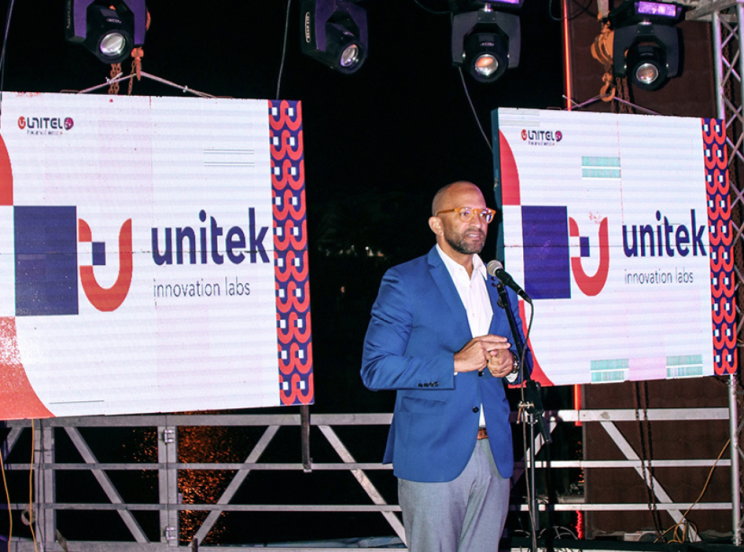Cape Verde, situated off the West African coast, boasts a growing economy driven by tourism, services, and remittances.
The nation’s scenic beaches and rich culture have made tourism a vital contributor to GDP and employment, growing by 481.5% in 2022 to reach 785,272 visitors from 2020– a figure that is more than the country’s population of about 593,149. Even more interesting is Cape Verde’s high rank in the recent Africa entrepreneurial ecosystem index.
Remittances from Cape Verdeans abroad are another crucial source of foreign exchange and household income, aiding poverty reduction and investment in education and healthcare. Though challenged by limited resources, agriculture and fisheries remain significant, with efforts to promote sustainability and enhance productivity.
The services sector, including finance and telecommunications, thrives due to Cape Verde’s strategic location for maritime trade. Energy security and infrastructure development are key challenges addressed through initiatives such as expanding the country’s renewable energy sources and strengthening digital connectivity and efficiency.
Despite progress in various sectors, Cape Verde faces challenges like high unemployment, income inequality, and vulnerability to external shocks. Overcoming these challenges will require strategies focused on building a solid and inclusive entrepreneurial ecosystem.
Nilda Mendes, who has over ten years of experience working in government and the private sector to promote entrepreneurship, believes that building a robust entrepreneurial ecosystem that supports startups can help drive gains made in tourism and bolster traditional economies while creating diversification opportunities. She believes there is a better ecosystem (environment) than eight years ago, and people are open to entrepreneurship, especially in the informal sector.
In the recent Africa Entrepreneurial Ecosystem Index (AEEI), Cape Verde emerged as the fifth-ranked country, showcasing the untapped potential and reflecting views by stakeholders such as Nilda Mendes about an improved business environment. Improving the entrepreneurial ecosystem will enable more productive entrepreneurship, creating jobs, social protection, and environmental resilience.
Through targeted policies enhancing the entrepreneurial ecosystem, Cape Verde can harness its economic potential through diversification for sustained growth and prosperity, building on the country’s solid macroeconomic credentials. Efforts to diversify the economy are underway to stimulate growth in other new sectors, such as digital.
The African Entrepreneurial Ecosystem Index (AEEI)
In February 2024, after months of research, a team of researchers from the Innovation for Policy Foundation (i4Policy), the Allan Gray Centre for Africa Entrepreneurship (AGCAE), and Utrecht University launched Africa’s maiden entrepreneurial ecosystem benchmarking index, dubbed the African Entrepreneurial Ecosystem Index (AEEI).
Based on a scientifically rigorous and societally relevant entrepreneurial ecosystem (EE) approach, the AEEI encompasses seven key challenge areas, providing detailed insights into the entrepreneurial landscape across the African continent. The challenge areas include finance, market access, governance, support, culture, infrastructure, and human capital.

The AEEI aims to provide stakeholders with the diagnostic tools to identify areas for improvement across the seven challenge areas. While some countries perform better in some areas, they lag in other challenging areas within their ecosystem.

Each challenge area is colour-coded using a traffic light system, with green indicating a score in the top third, orange representing the middle-ranked, and red representing a score in the bottom third.
Drawing parallels with Mauritius, [Cabo Verde] could offer valuable insights into building the country’s ecosystem to overcome critical challenges such as human capital, finance, governance, and business support, both locally and globally
The Index is a great tool for helping diagnose and adopt solutions that could drive entrepreneurship in various countries and further bolster their economic gains.
Diagnosis of Cape Verde’s Entrepreneurial Ecosystem: Opportunities and Areas for Improvement
The AEEI reveals Cape Verde’s hidden potential as a driver of entrepreneurship on the continent. Cape Verde emerged as the fifth-ranked country in the AEEI, showcasing untapped potential. Cape Verde’s top position has surprised many due to its untold story and status as an unknown destination and business breeding ground. Just like Mauritius, Panama, and Iceland, Cape Verde could emerge as the entrepreneurial hub for the west coast of Africa.
Milton Cabral, Programme Director for Cabo Verde Digital, believes that the country’s geo-location and proximity to West Africa, Europe, and the USA gives it an advantage as a business hub.
Despite being overlooked in discussions of entrepreneurial ecosystems, Cape Verde exhibits promising prospects for fostering a robust entrepreneurial ecosystem. Mauritius, which ranked first on the AEEI, has characteristics similar to Cape Verde regarding geography, population, and economic structure. Drawing parallels with Mauritius, it could offer valuable insights into building the country’s ecosystem to overcome critical challenges such as human capital, finance, governance, and business support, both locally and globally.
The AEEI means more to Cape Verde than just a score. A diagnosis of its performance in the sub-indicators will highlight where it performed well, as well as opportunities for growth and areas for improvement. Doing so requires a disaggregation of Cape Verde’s performance on the index relative to the sub-challenges of Market Access, Infrastructure, Finance, Human Capital, Governance, Support, and Culture. From the figure below, stakeholders need to consolidate gains made in governance for entrepreneurs, improve on building the proper infrastructure, and build a human capital base and support programs for entrepreneurs.
However, more work is needed to open up market demand for companies, increase investment sources, and build a culture of trust for co-creating ventures within the country. Let us elaborate a bit on these factors below and depicted in the figure below.

The Cape Verde entrepreneurial ecosystem is relatively robust (in the top third of Africa) in the following areas:
Governance – The country has a good governance score of 0.95, placing it on par with Mauritius and above South Africa. This demonstrates the presence of sound policies and legislation to support the business ecosystem, the rule of law, low corruption, and stable democracy. Milton Cabral has touted Cape Verde’s e-government portal as the main reason for the country’s high score.
Support – This refers to the availability of ecosystem support services such as business incubation and acceleration and the use of digital and social networks like LinkedIn for support and networking. The country is currently just above the African average and will need to enhance its business support services for entrepreneurs. This could also involve improving the effectiveness of existing services.
Infrastructure – With a score of 0.61, the country invests in infrastructure systems such as digital infrastructure (internet and telecommunications) and good roads, among others. With additional investments, notably in broadband access, the country could build a robust infrastructure system and improve the overall connectivity and accessibility of the entrepreneurial ecosystem.
Human Capital – This measures the quality of education, the completion rates at various levels of education, employment, and general well-being in terms of life expectancy. Cape Verde performed low in R&D (0.027) and tertiary enrollment for the youth (0.37).
To participate in the future of work for its citizens, the country needs to invest in and improve the quality of its youth at the tertiary levels, equipping them with the skills and building competencies in research and development that match the needs of an advanced entrepreneurial ecosystem.
While Cape Verde demonstrates commendable performance in governance, signaling a commitment to enhancing the business environment, it faces challenges in areas such as providing and attracting financing for business activities, nurturing and encouraging an entrepreneurship culture, and facilitating market access for businesses—the twin issues of funding and market access need addressing.

First, the country’s market size could challenge local businesses to scale and attract domestic and foreign financing. Second, foreign investors and companies may not be incentivised to expand into Cape Verde due to the small market size. Even though it will be challenging to increase overall GDP and population substantially, increasing Cape Verde’s export position and fostering regional integration and household incomes are ways to improve market access.
The last challenge is the low cultural outlook towards entrepreneurship. Issues of trust among partners to collaborate and fund entrepreneurship are a challenge.
Addressing these challenges is crucial for fostering entrepreneurial growth, with market connectivity playing a pivotal role in attracting investments and nurturing a vibrant entrepreneurial culture.
What Do Local Players Think of Cape Verde’s Entrepreneurial Ecosystem?
The AEEI index was constructed based on aggregated secondary data. To validate and better understand the local dynamics, we engaged local stakeholders and current reports on Cape Verde to gather inputs and feedback on the various challenge areas. The views generally reflect the outcomes of the index regarding the progress made and challenges ahead.
Generally, lack of investment for both pre-seed and growth-stage companies remains a challenge. Credit banks lend to mature businesses with collateral, which most startups have. Startups need the funding to test and validate their ideas in the market
Engagement with stakeholders about Cape Verde’s startup ecosystem reveals challenges and potential.
Laurent Gachnang, Digital Advisor at Digitalrat GmbH, recounts how easy it was as a foreigner to set up his business in about two days. Also, the government’s E-gov portal claims to have connected about 700+ Institutions with over 100 E-gov Solutions. Progress towards streamlining business processes and digital government services could further improve the governance environment for the rule of law and ease of business.
Despite the rise in incubation programs aimed at fostering startups, there are mixed views about the success and impact of these programs. In a LinkedIn post by Darlyn Estrla, stakeholders held different opinions regarding the country’s support program. Although there are a few success stories (Empresa Smart Solutions, Empresa Chuva, and Power Solutions), many startups struggle to materialise into tangible businesses.
A primary concern is the “valley of death,” where startups fail due to poor product-market fit, poor marketing strategies, and cash flow problems. The government is working to build a supportive ecosystem for entrepreneurs through the Pro Empresa and Digital Cape Verde programs.
The government-sponsored Cabo Verde Digital training and incubation programs have trained and mentored over 200 youths and supported over 100 startups. Yet, many remain in the early stages or fail to progress. Digital Cape Verde focuses on growing the next wave of digital startups, Which, according to Milton Cabral, the Program Manager, is part of the long-term goal of making Cape Verde the digital hub of the Atlantic and West Africa.
Besides the government, there are private sector initiatives that complement government efforts. The Business Innovation Centre offers varied services for entrepreneurs who want to start businesses.

Unitel T+, a major telco provider in Cape Verde, has launched the Unitek Innovation lab, which seeks to partner with and support developers in building innovations for the market. With a focus on the youth, the goal is to promote open innovation around Unitel’s infrastructure, among others.
While crucial, government and private sector support is not solely responsible for startup success; determination and self-reliance are also essential. Market access from within and outside the borders remains challenging for the island.
Nilda Mendes believes that Cape Verde’s small market size could lead to a shorter life cycle for startups due to its inability to scale and attract growth-stage investments. Entrepreneurs lack experience and understanding of the African market for expansion, and Cape Verde alone cannot create the needed demand for scale. Connections to external markets are essential in both traditional and digital sectors.
Generally, lack of investment for both pre-seed and growth-stage companies remains a challenge. Credit banks lend to mature businesses with collateral, which most startups have. Startups need the funding to test and validate their ideas in the market. Transport and logistics infrastructure for movement among the seven islands remains challenging, especially during bad weather.
Laurent Gachnang, Digital Advisor at Digitalrat GmbH, advocates for a more stable interconnecting transport system to make moving people and goods easier within the country.
Opportunities for strengthening Cape Verde’s entrepreneurial ecosystem
Cape Verde’s young but evolving entrepreneurship ecosystem offers promises of growth. To Milton, Cape Verde can position itself within the entrepreneurial ecosystem as an entrepreneurial sandbox that creates the right environment to attract global players to come to the country and complement local players to test ideas within a smaller market before expanding to the African regional market. To this end, the government is building a technology park to position the country as the headquarters for companies looking to access the African region.
Achieving this will require different pathways that consolidate current gains in tourism, agriculture, and a skilled workforce while exploring new opportunities such as the blue economy. The country’s focus on becoming a digital and innovation hub can drive growth and unlock opportunities in expanded tourism potential by listing on digital tourism platforms, for example.

The tourism sector is dominated by big organisations with limited room for startups to participate. Nurturing startups to complement existing players will create more opportunities. Agriculture is another area where technology and innovative solutions for irrigation and value addition could drive growth.
When Nilda Mendes was asked about new growth opportunities, she smiled and quickly mentioned the blue economy. According to her, Cape Verde has the ocean and could build its capacity as a hub for training and service development for the blue economy.
Recent ILO estimates put the country’s unemployment rate at 12.07% for 2023, highlighting the need to explore new opportunities to create real jobs for improved living standards.
According to the World Bank, The blue economy is the “sustainable use of ocean resources for economic growth, improved livelihoods, and jobs while preserving the health of ocean ecosystems.”
Therefore, new initiatives and sectors that contribute to job creation and improved livelihoods. Improving education and building specialities in digital services, the blue economy, and new areas like artificial intelligence which Laurent Gachnang believes can increase the talent pool for domestic and foreign markets. The country could also attract foreign partners who can complement the government in making Cape Verde a talent hub.
Partnerships with development partners and local city councils can lead to a win-win situation for ecosystem development. Startups need market validation and the ability to pivot based on feedback and co-created programs such as this can improve startup longevity.
Clearly, the need to expand and access wider markets within Africa and beyond will drive the growth of local startups and attract investors. For digital services, leaders could explore other Portuguese-speaking markets in Africa, comprising about 73 million people together.
Further, taking advantage of regional trade blocs and protocols such as ECOWAS, the AU, and AfCFTA could drive export growth. While Cape Verde’s small market is a good testing ground, startups must address problems with broader relevance to scale effectively. Creating a platform for investors to connect with local entrepreneurs and providing financing and guidance is necessary.
To improve the effectiveness of incubation programs, stakeholders recommend tailored mentorship, comprehensive training, enhanced funding access, collaborative spaces, market research support, feedback loops, networking opportunities, scalability focus, and legal support.
Finally, post-incubation support, ongoing mentorship, and network access are critical for navigating challenges and scaling. In June this year, ten immigrant startup projects out of 30 finalists were selected for incubation in the final phase of the Startup Imigrante Entrepreneurship Competition, initiated by the Business Incubation Center (BIC) in partnership with the International Organization for Migration (IOM) and Praia City Council.
Partnerships with development partners and local city councils can lead to a win-win situation for ecosystem development. Startups need market validation and the ability to pivot based on feedback and co-created programs such as this can improve startup longevity.
Looking Ahead: Positioning Cape Verde as an Entrepreneurial Hub
Cape Verde should anchor its entrepreneurial ecosystem around industries without smokestacks, such as business services, technology-driven tourism, ICT, logistics, and smart agriculture and agro-processing. Achieving this will require policies to maximise the gains and address the weaknesses. Therefore, innovative entrepreneurship policies and strategies that mitigate risks, facilitate global market integration, and attract foreign investments are critical. Initiatives such as upskilling the workforce through business incubation, strengthening financial infrastructure, and fostering vibrant support systems through entrepreneurial hubs are imperative.
Additionally, building startup exchanges with neighbouring West African countries such as Senegal, Ghana, Nigeria, and Cote d’Ivoire could enhance global connectivity and attract foreign talent, thereby bolstering the entrepreneurship ecosystem.
Collaboration with the private sector, fostering national champions, and a vibrant startup base through implementing a national entrepreneurial policy can propel Cape Verde toward becoming a favoured entrepreneurial hub for domestic and foreign entrepreneurs.
Guided by the AEEI, Cape Verde policymakers should prioritise sector-agnostic incentives and initiatives, signalling readiness as a favourable destination for local, regional, and global entrepreneurs. Initiatives such as a national startup policy can serve as foundational steps in this transformative journey, fostering an environment conducive to entrepreneurial growth and positioning Cape Verde as a beacon of entrepreneurial opportunity in the African landscape.
Catch up on news and other tidbits on our WhatsApp Community Page, Twitter/X, and subscribe to our weekly newsletter to ensure you don’t miss out on any news.










